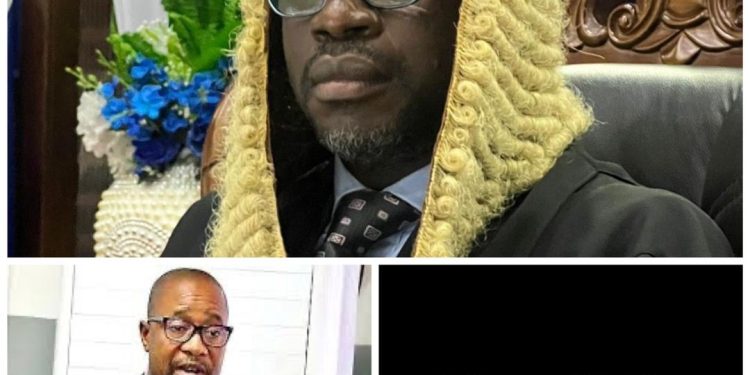By Mackie M. Jalloh
Sierra Leone’s digital future hangs in the balance as internet connectivity issues worsen, sparking nationwide outrage. At the center of this crisis is the controversial contract that handed control of the International Gateway to ZoodLabs, a technology and smart utility infrastructure company. Since December 2020, when ZoodLabs took over from the Sierra Leone Cable Limited (SALCAB), the country’s telecommunications infrastructure has been plagued by mismanagement and unfulfilled promises, all of which trace back to the actions of Mohamed Rado Swaray, the former Minister of Information and Communications.
Swaray, now the Minister of Labour, has been accused of putting his personal interests ahead of the nation’s needs, leaving Sierra Leoneans to bear the brunt of his poor decisions. The most recent and severe disruption occurred on Sunday, August 4, 2024, when a significant outage caused by ZoodLabs left the country without critical communication services for nearly four hours. While the issue was eventually resolved, the damage had already been done, further eroding public confidence in ZoodLabs’ ability to manage the gateway.
The seeds of this crisis were planted when ZoodLabs was awarded the contract to manage the International Gateway under Rado Swaray’s watch. The company had pledged to invest $20 million to upgrade outdated equipment at the landing station, a promise that remains unfulfilled nearly four years later. Instead, ZoodLabs has operated on shaky financial ground, relying on bank loans and payments from Mobile Network Operators (MNOs) and Internet Service Providers (ISPs) to keep the lights on. Even more concerning is the fact that ZoodLabs quickly exhausted the Le6 billion it inherited from SALCAB as seed money within just one month, raising serious questions about the company’s financial management and transparency.
The circumstances surrounding the awarding of the ZoodLabs contract are equally troubling. During the pending submission of the contract to Cabinet and Parliament for approval and ratification, the Ministry of Finance flagged several serious flaws. In a letter dated December 14, 2020, the ministry outlined eight areas of concern related to the contract’s financial transactions. These included a lack of clarity and justification for granting ZoodLabs access to the national terrestrial backbone infrastructure, especially given the government’s existing debt. Despite these warnings, the contract was ratified by Parliament on April 28, 2022, with little scrutiny, thanks in large part to the narrative pushed by then-Deputy Minister of Information and Communications, Solomon Jamiru Esq., who framed the agreement as essential for improving internet connectivity.
However, the subsequent developments have laid bare the flaws in the ZoodLabs deal, and many are now questioning how such a contract was ever approved in the first place. One of the most significant moments of dissent came from Honourable Ibrahim Tawa Conteh, who was then the Chairman of the Parliamentary Transparency and Accountability Committee. Conteh, now Deputy Speaker of Parliament, resigned from his position following a heated confrontation with Rado Swaray over the mismanagement of SALCAB’s fiber optics. His resignation was a clear signal that something was deeply wrong with the ZoodLabs contract, and it underscored the need for a thorough investigation into the entire affair.
Criticism of the ZoodLabs contract has come from various corners, with many pointing to Rado Swaray as the key figure responsible for the current state of affairs. His failure to ensure that ZoodLabs fulfilled its $20 million investment promise is particularly damning. While ZoodLabs’ management bears responsibility for their actions, it is Swaray’s role in enabling their mismanagement that has left the most lasting impact. His decisions have not only compromised the integrity of the nation’s telecommunications infrastructure but have also betrayed the trust of the Sierra Leonean people.
Rado Swaray’s legacy is one of neglect and self-interest, and the consequences of his actions are now being felt across the country. The unfulfilled promise of $20 million that could have transformed Sierra Leone’s telecommunications infrastructure remains a glaring reminder of what could have been. Meanwhile, the nation continues to suffer from unreliable internet services, further stifling progress in an increasingly digital world.
The time for accountability is now. Honourable Tawa Conteh, with his firsthand knowledge of the contract’s flaws, must lead the charge in revisiting the ZoodLabs deal. It is imperative that those responsible for this debacle, including Rado Swaray, are held to account. The people of Sierra Leone deserve better than the failed leadership and broken promises that have characterized this saga. The future of the nation’s telecommunications infrastructure—and the wellbeing of its people—depends on taking decisive action to correct the wrongs of the past.










